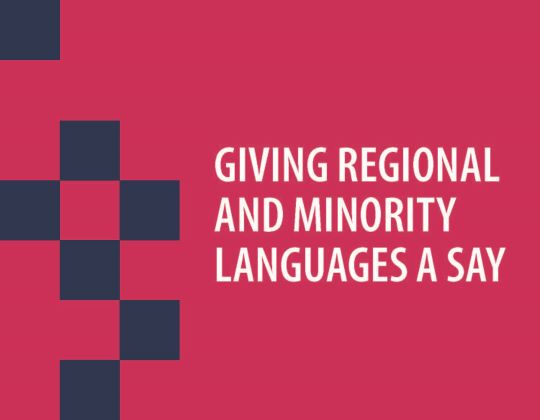Strasbourg, 14.09.2023 – A report released today by the Committee of Experts which monitors compliance with the Council of Europe’s European Charter for Regional or Minority Languages acknowledges that Romania has a solid legal framework and policies for the protection of minority languages, including in education, but regrets that the population threshold for their use in the administration is too high.
The European Charter for Regional or Minority Languages applies to 20 languages in Romania. Ten languages (Bulgarian, Croatian, Czech, German, Hungarian, Russian, Serbian, Slovak, Turkish and Ukrainian) enjoy higher protection since Romania has made additional commitments to promoting them in public life, particularly as regards their use in education, justice, public administration, media, economic and social life, culture, and transfrontier exchanges. The Charter also protects Albanian, Armenian, Greek, Italian, Macedonian, Polish, Romani, Ruthenian, Tatar and Yiddish.
The Committee of Experts highlights that Romania´s system for protecting minority languages shows best practices in many areas. The Romanian Constitution and specific laws provide a general protection framework, and large financial support is provided to 19 national minority organisations to promote their culture and languages.
However, the Committee of Experts expresses its concern that the 20% threshold in the national legislation for the use of minority languages in the administration seems to be too high and, if applied inflexibly, deprives speakers of minority languages of the full protection provided by the Charter. Following the 2021 census, which reflected a decrease in the national minorities population, the Committee of Experts calls on the authorities to consider the census results only as one indicator among others.
Considering that Romani is spoken as a mother tongue by at least 199,000 persons in the country and that it is estimated that the number of speakers is much higher, the Committee of Experts recommends that the Romanian authorities further promote the presence of Romani in public life, particularly in education.
Although German and Hungarian benefit from a very favourable situation in education, the report calls on the authorities to swiftly address the shortage of teachers – which also seriously affects Czech and Romani - including through incentives to make the profession more attractive.
As regards the use of some minority languages in judicial proceedings, the Committee of Experts regrets that persons submitting written documents in a minority language bear the extra costs of translation in civil and administrative proceedings, in contradiction with the provisions of the Charter.
Finally, the report praises the strong and comprehensive offer of cultural activities in minority languages, the satisfactory offer of radio programmes and that the Romanian Television has specific programming in Hungarian, German and other minority languages.
The third evaluation report of the Committee of Experts of the European Charter for Regional or Minority Languages is based on the information provided by governmental and non-governmental sources, including that obtained during its visit to Romania in February 2023.
A summary of the evaluation report is also available in Romanian.





